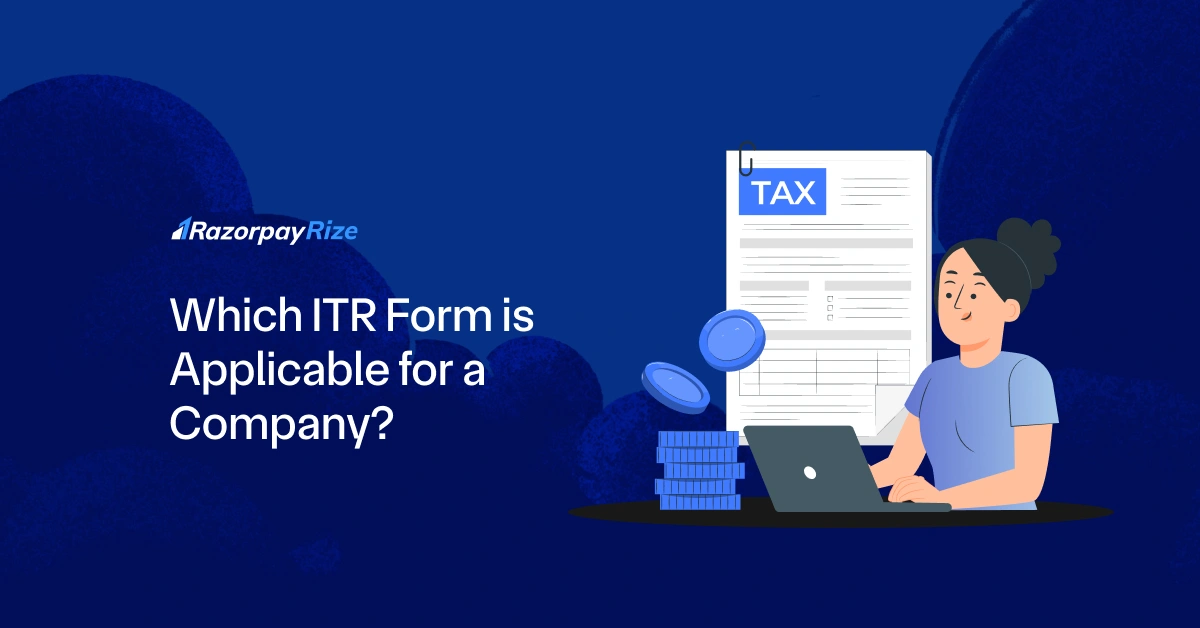In India, the AI ecosystem is evolving at a remarkable pace. The government’s proactive initiatives are creating a supportive environment for emerging tech ventures. Startups are using AI to solve real-world problems in healthcare, fintech, agriculture, logistics, and education, and the demand for intelligent solutions is only accelerating. Global investors are also increasingly considering India a hub for deep-tech innovation, with AI playing a central role.
If you're planning to launch an AI startup in this dynamic landscape, one of the first and most important steps is establishing your legal foundation by registering your company. From choosing the right legal structure to understanding data privacy norms and protecting your intellectual property, the decisions you make early on can significantly impact your startup's journey.
Table of Contents
Why You Should Start an Artificial Intelligence Solutions Business in India?
India is becoming a global AI hub. Several factors make it fertile ground for launching AI startups:
- Huge Market Demand: Industries like fintech, healthcare, education, and logistics are actively adopting AI.
- Government Support: Initiatives like the National Strategy for Artificial Intelligence, startup schemes, and sandbox environments encourage AI innovation.
- Talent Availability: India boasts one of the largest pools of tech and data science talent.
- Cost Advantage: Operating costs and engineering salaries are still lower than in the West.
- Global Export Potential: Indian AI products can serve both domestic and international markets.
Market Research and Niche Identification
Before writing a single line of code or registering your business, research is key.
- Market Research: Analyse trends in AI adoption from predictive analytics and NLP to computer vision and GenAI. Identify real pain points across industries, understand competitor offerings, and spot emerging gaps.
- Niche Selection: Don’t try to be everything to everyone. Narrow your focus. Are you solving a problem in healthcare diagnostics, automating retail inventory, or creating AI copilots for content teams?
- Data-Driven Decision Making: Use public datasets, surveys, Google Trends, and customer interviews to validate demand.
Tip: Start small, prove your model in one segment, and then scale.
Kickstart your AI venture—register your startup with expert help tailored for tech founders.
Legal Structure Selection
Your legal structure affects liability, taxation, compliance, funding, and perception.
Popular options for AI startups:
- Private Limited Company (PLC): Best suited for startups seeking to raise capital. Offers limited liability, better credibility, and scalability.
- Limited Liability Partnership (LLP): Combines the flexibility of partnerships with limited liability. Less ideal if you plan to raise venture capital.
- One Person Company (OPC): Easier to set up with a single owner, offers no liability protection but limited growth potential.
Note: Most AI startups aiming for scale and funding choose to register as Private Limited Companies under the Companies Act, 2013.
Registration and Compliance
Once you’ve selected your legal structure, follow these key steps to register your business:
Key Registration Steps:
- Obtain DSCs for directors (Digital Signature Certificate)
- Register your company with the MCA (Ministry of Corporate Affairs)
- Apply for PAN and TAN
- Register for GST if your turnover exceeds the threshold or you're providing services across states
- Open a bank account in the company’s name
Tip: Use the SPICe+ form on the MCA portal- it combines name approval, incorporation, PAN, TAN, EPFO, and ESIC into one form.
Intellectual Property (IP) Protection
For an AI startup, IP is your core asset. Whether it's your brand, your algorithm, or your dataset, protect it.
What You Should Consider Protecting:
- Trademark your brand name and logo
- Copyright original code, training data, or written content
- Patent any novel AI technique, model architecture, or unique solution
Data Privacy and Compliance
AI businesses often deal with large volumes of personal and sensitive data. Protecting it is surely mandatory.
Ensure:
- Clear privacy policies
- User consent mechanisms
- Proper data anonymisation
- Secure storage practices
Funding Your AI Venture
AI businesses often require upfront investment for model training, infrastructure, and talent. Here's how you can fund it:
Funding Options:
- Bootstrapping: Start lean, especially if you're solving a niche problem
- Angel Investors: Look for early-stage investors with tech or SaaS experience
- Venture Capital: Once you have traction or a working product
- Startup India Scheme / MeitY Grants: Government initiatives for deep-tech and AI
Tip: Most investors in AI want to see real use cases, traction, and defensible technology.
Operational Setup
Once registered, set up your AI business for daily operations:
- Choose your tech stack (e.g., Python, TensorFlow, AWS/GCP)
- Hire key roles- data scientists, ML engineers, backend devs, and product owners
- Set up internal processes for version control, documentation, and data pipelines
- Create scalable workflows for automation over manual ops
Keeping Up with AI Regulations
AI is under increasing scrutiny globally. Your startup must stay ahead of legal and ethical expectations.
Stay informed on:
- India’s upcoming AI regulation framework
- Global movements like the EU AI Act or the OECD AI principles
- Set up an internal AI ethics framework even if you’re early-stage.
Marketing and Scaling
Even the best AI solution won’t go far without the right Go-To-Market (GTM) strategy.
Marketing Channels:
- Content Marketing & SEO – Educate, don’t sell
- LinkedIn & Twitter/X – Engage with the tech and founder community
- Product Demos & Webinars – Show real-world use cases
- Partnerships – Integrate with existing platforms or systems
Challenges and Considerations
AI startups in India face unique challenges. Be prepared for:
- High Development Costs: GPUs and infrastructure aren’t cheap.
- Access to Quality Data: Clean, labelled data is hard to come by.
- Talent Gaps: Skilled AI engineers are in high demand.
- Evolving Regulations: Compliance is still catching up with innovation.
- Ethical Concerns: Bias, misinformation, and explainability are real issues.
Build lean, partner with academia, and stay agile. Solve real problems, not just technically impressive ones.
Frequently Asked Questions (FAQs)
Private Limited Company
(Pvt. Ltd.)
- Service-based businesses
- Businesses looking to issue shares
- Businesses seeking investment through equity-based funding
Limited Liability Partnership
(LLP)
- Professional services
- Firms seeking any capital contribution from Partners
- Firms sharing resources with limited liability
One Person Company
(OPC)
- Freelancers, Small-scale businesses
- Businesses looking for minimal compliance
- Businesses looking for single-ownership
Private Limited Company
(Pvt. Ltd.)
- Service-based businesses
- Businesses looking to issue shares
- Businesses seeking investment through equity-based funding
One Person Company
(OPC)
- Freelancers, Small-scale businesses
- Businesses looking for minimal compliance
- Businesses looking for single-ownership
Private Limited Company
(Pvt. Ltd.)
- Service-based businesses
- Businesses looking to issue shares
- Businesses seeking investment through equity-based funding
Limited Liability Partnership
(LLP)
- Professional services
- Firms seeking any capital contribution from Partners
- Firms sharing resources with limited liability
Frequently Asked Questions
How to start an AI startup in India?
Here’s a step-by-step guide to getting started:
- Conduct Market Research
- Finalise Your Business Model
- Choose a Legal Structure
- Register Your Business
- Secure IP Rights
- Build the Tech Stack
- Hire Your Core Team
- Set Up Compliance
- Launch Your MVP or Pilot
- Seek Funding or Grants
Do I need to register my business for AI services in India?
Yes. Registering your business gives it legal recognition and enables you to operate officially, open bank accounts, raise funding, and sign client contracts.
What legal structure is best for an AI business in India?
A Private Limited Company is preferred for AI startups due to easier fundraising, limited liability, and scalability. LLP is also a good option for smaller teams.
What licenses and certifications are required for an AI business?
There are no AI-specific licenses, but you may need:
- Company registration with the MCA
- GST registration (if turnover exceeds ₹20 lakh/₹40 lakh)
- Data protection compliance (DPDP Act or GDPR if operating globally)
How much does an AI startup cost?
Initial costs depend on product complexity, team size, and infrastructure. Major expenses include development, cloud services, compliance, and marketing.
Are there any benefits for AI startups under Indian government schemes?
Yes. Schemes like Startup India, Digital India, and MeitY-backed AI centres offer tax exemptions, funding support, and incubation opportunities.
Is GST registration mandatory for AI startups?
It is not mandatory unless your turnover exceeds the threshold (₹20 lakh for service providers) or if you plan to work with businesses that require GST-compliant invoices.
















